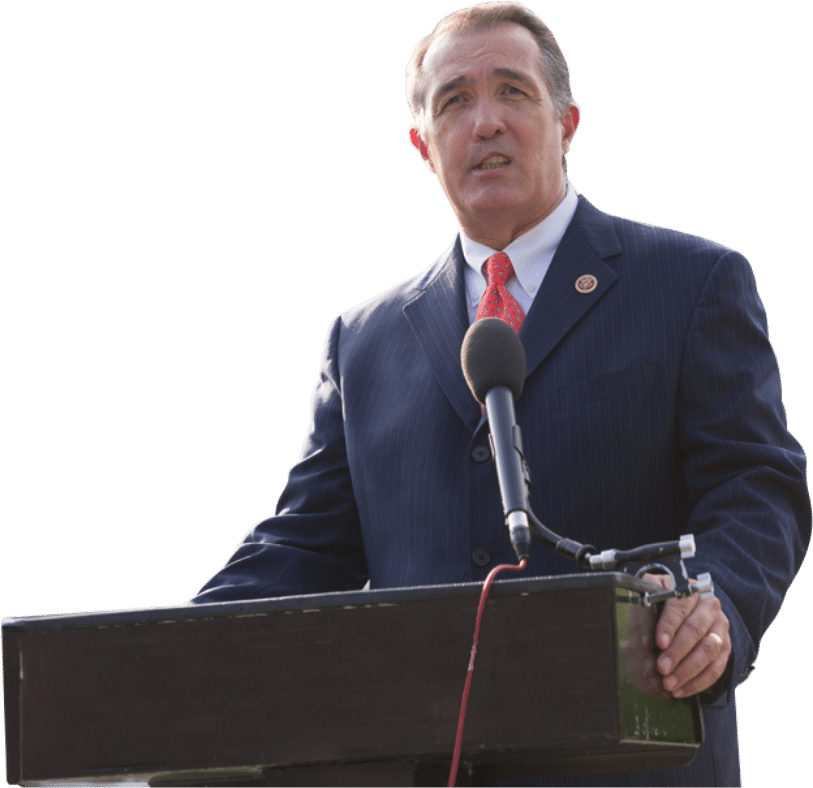Does President Donald Trump really want to shut down the American government?
Of course not.
If current Senate rules allowed Congress to parse out and work its majority will and be held accountable to the voters on individual spending items (like border wall funding and hundreds of other good or bad things) without shutting the government down, a government shutdown would be unheard-of rather than becoming standard operating procedure.
Unfortunately, the 60-vote motion-to-proceed rule in the Senate empowers Democrats to prevent any appropriations bill they oppose from ever coming to the floor for an actual majority vote on its substance. This would certainly include any bill containing the adequate border wall funding that Trump seeks. If the appropriations process is held up long enough by Democrats, the government, eventually but automatically, shuts down.
Democrats then go on television saying something like, “Republicans currently control the House, Senate and the White House, obviously any shutdown is completely the fault of Republicans”. It is a convincing argument that makes it hard for American voters to come to any other logical conclusion.
As long as the 60-vote Senate rule stands, voters will never understand the convoluted process, much less have their voices fully heard. Neither party will actually be either in control or responsible, Republicans will never be able to repeal budget-crushing boondoggles like Obamacare (many astute analysts opine that this cost Republicans the House of Representatives in the midterm), and the cycle of no clarity and no accountability will relentlessly continue.
Sen. McConnell and his “reelection-at-all-costs” colleagues maintain this insane rule because it protects senators from being forced to take the tough votes on the record; even, and perhaps especially, those votes that are controversial but vital to our country’s survival.
The president cannot rely upon his own party to give him an appropriations bill he can sign in good conscience. They instead force upon him the conundrum of breaking a major campaign promise and capitulating on border wall funding by signing a bloated appropriations bill with only token border wall funding — or vetoing it and being seen to be blatantly shutting the government down to the devastation of his party at election time.
The president has tried to combat this absurdity by making politically unsustainable threats to shut down the government while assigning as much of the well-deserved blame upon the Democrats as possible for using the 60-vote rule to block consideration of any bill containing adequate border wall funding.
President Trump has been more successful than his predecessors at doing this.
During one of the last major spending debates, the president was able to very temporarily overcome the Democrat obstructionism by shaming them publicly. But it only pushed the log up the trail for a few weeks. Once again, the inevitable result was that the president was given the Hobson’s choice of signing a $1.3 trillion boondoggle containing bloated spending on items most Republicans hate because the 60-vote rule prevented them from getting a separate vote on those items.
Once again, Republicans failed to rein in spending. Once again Republicans took another hit with their base at election time. Once again, Republicans allowed the Democrats to push a sleepy country a few more ominous moments closer to the stroke of midnight when government insolvency will overshadow all other considerations.
Indeed, a government is what it spends, and no more perfect mechanism has ever been devised in the mind of man to guarantee relentless, uncontrollable, bloated, government spending than the 60-vote motion-to-proceed rule:
When “Spenders” control the Congress, the “Spenders” are able to buy the extra votes (to get to the 60 they need) to pass their bloated spending bills by adding still more bloated spending provisions for individual senators in exchange for their yes votes. When the “Fiscally Sane” control the Congress, the “Spenders” are able to use the 60-vote rule to prevent any appropriations bill from coming to the Senate floor unless it contains exactly what the “Spenders” dictate. Capitulation or a politically unsustainable shutdown is the only remaining choice and, consequently, the “Fiscally Sane” never really have a chance.
If this simple but hidden reality of congressional process, in this philosophically and politically polarized time in which we live, was clearly understood, it would erase, in any rational mind, the question as to why the country is mindlessly, but inexorably, approaching the cataclysm of government bankruptcy.
If the Senate had not been forced to change the 60-vote rule on Supreme Court Justices, Neil Gorsuch and Brett Kavanaugh would have had no chance whatsoever of being confirmed to the Court. Their confirmation to the Court may save the Constitution. The same principles and dynamics apply to the 60-vote rule now preventing legislation or spending reform necessary to save the country.
Yet, Republican leadership has continued to allow the 60-vote motion-to-proceed to render the Senate incapable of passing vital Republican legislation or fiscally sane appropriations in the Senate. They cite the need to protect the 60-vote rule as their “firewall” against a left-wing onslaught if Democrats should ever retake both chambers and the White House.
Are Republicans so obtuse as to believe that the same radical left mindset that they justifiably fear would both bankrupt and obliterate the constitutional fabric of the nation without a second thought would somehow suddenly hesitate to nuke (as they’ve done in the past and vowed to do in the future) a Senate rule that stood in their way?
Republicans will be guilty of all the good we did not do. There was a fleeting moment before us. Republican leaders in the Senate could have used the threat of the nuclear option to transform the 60-vote rule for legislation in the Senate into a workable process vital to the country and fair to both parties going forward. Now, the lame-duck may be their last opportunity for years to come.
Alexis de Tocqueville said, “The American Republic will endure until the day Congress discovers that it can bribe the public with the public’s money.”
There is ample evidence that America is far beyond Mr. de Tocqueville’s now manifest warning. What is even more ominous is that the 60-vote Senate rule, if left as is, will allow those in both parties culpable of bribing “the public with the public’s money” to largely escape visibility or accountability — at least until posterity finally re-assembles and forensically analyzes the remnant wreckage of the greatest Republic in the history of man.
Trent Franks served 15 years in United States Congress and was Chairman of the Subcommittee on the Constitution.
SIGN UP FOR UPDATES
Sign up to get the latest information about Congressman Trent Franks’ campaign.
"*" indicates required fields
Proven conservative leadership
Trent Franks
For Congress
 For such a time as this
For such a time as this 

